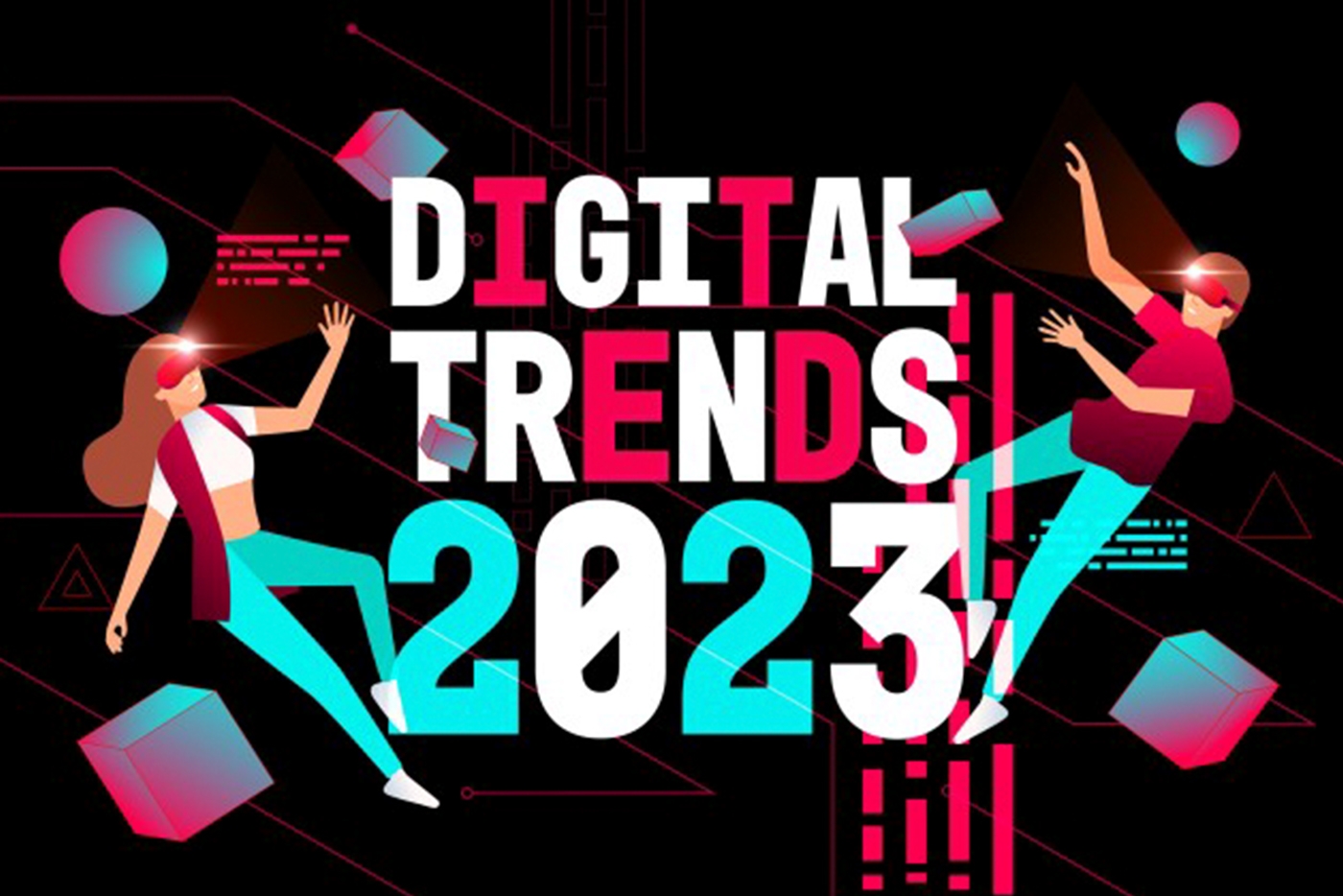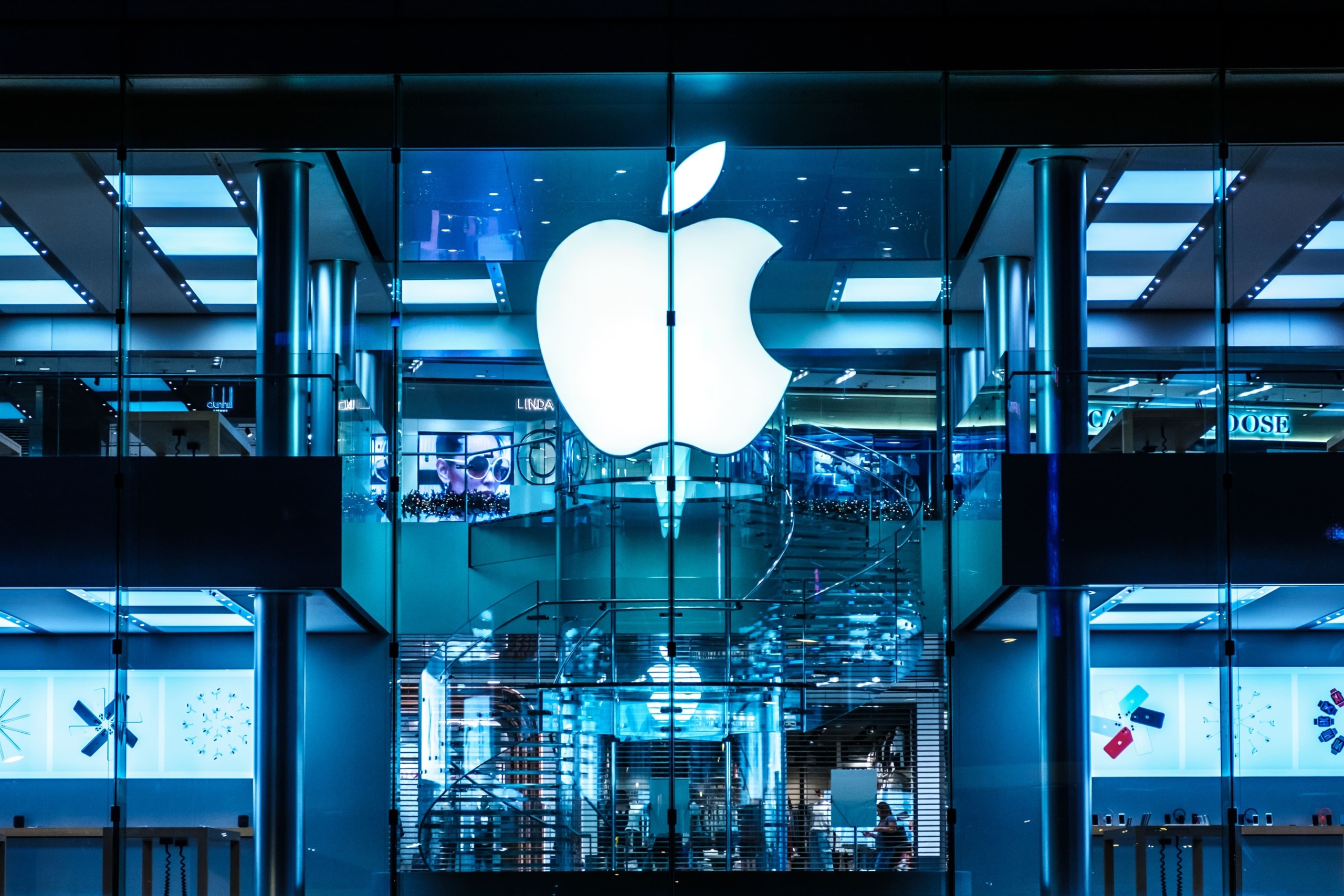What Tech Trends Should Companies Focus on in 2023? Here Are Three to Consider (And One to Ignore)
7 March 2023
This doesn’t mean every business has to develop and sell technology-related products and services. It means that every business needs to undergo a process of technology-driven digital transformation. By using the tools, methodologies and applications that have been tried and tested by the likes of Google, Apple or Netflix to build global empires, any business can achieve three key strategic goals:
· Build products and services that more closely match their customers’ needs.
· Streamline and drive efficiencies throughout their processes and operations.
· Develop a better understanding of their market and their competition.

Contrary to popular belief, you don’t need to be a “tech giant” to put these hot technology trends to work. You don’t need IT departments with hundreds of staff or to invest millions in computing infrastructure. What you do need, though, is a thorough understanding of them and what they can do for your business and industry. In particular, there are three trending technology trends that I feel everyone needs to get to grips with, because they are set to disrupt just about every industry.
There’s also one much-hyped technology which I feel – while not exactly a dead end – might not be as relevant to every business, right now, as its proponents are often keen to claim.
Artificial Intelligence
Let’s start with the biggie! Artificial Intelligence (AI) is not a technology that’s about to change the world – it’s already all around us, and deeply embedded into our everyday lives. From searching Google for information, to taking pictures with our smartphones, to interacting with virtual assistants like Alexa or Siri, to shopping online, so much of what we do is already empowered by AI algorithms. And this is only going to increase.
For my money, AI will be the most transformative technology of the century. Just as electricity and mechanization allowed us to automate many of the manual, everyday tasks of the 19th and 20th centuries, AI will do so for tasks that require thought and decision-making. It’s also a prime example of a technology trend that, despite what you might think, isn’t by any means restricted to the giants of silicon valley, or financial services companies with millions to spend on research and development. If your business uses Google or Facebook advertising to target new customers, you’re using AI. If you use search engines for market research to identify competitors in your local area, you’re using AI. The trick, though, is to use it strategically and scientifically. This means identifying opportunities to use it to achieve key business aims, measuring your success or failure, and adapting as necessary.
The truth is, the explosion of cloud-based, AI-as-a-service platforms that are available today puts power in the hands of the average business user that would have seemed fantastical just five or so years ago. Like most people, you’ve probably recently heard of or used ChatGPT, the natural language-powered chatbot that can have lifelike conversations or generate written text that most people would think came from a human. Likewise, DALL.E-2 has become an internet sensation, blowing minds with its ability to create images and illustrations based on words it’s fed. These tools alone are enough for a range of business functions but more advanced users will look for ways to leverage the technology to identify and build stronger relationships with customers, and provide personalized products and services via mass-customization. If there is one technology trend which businesses simply cannot afford to ignore in 2023, it’s AI. Doing so would be a worse idea than ignoring the arrival of computers or the dawn of the internet!
Cyber Security
As I’m writing this, news is breaking of a cyberattack against the UK’s Royal Mail believed to have been carried out by Russian hackers. The attack means that all overseas mail is currently stuck in depots and unable to be delivered. If proof were needed that the scope and severity of cyberattacks is increasing, then it doesn’t get much more dramatic than disrupting the postal service of an entire nation.
Research by Check Point suggests that the number of attacks during 2022 increased by 38% and the average cost to an organization hit by hackers is said to be around $3.8 million. Unfortunately it isn’t just large companies that are being targeted, either – the FBI says that of around 850,000 cyber attacks reported against organizations in 2021, the majority were directed at small business.
There are several catalysts for this. One is the ever-more-sprawling “internet of things.” This is a term for the network of online devices that previously just included computers and smartphones but now consists of smart cars, televisions, wearables, industrial equipment, kitchen appliances and many more. Its existence means there are simply more doorways into our networks for attackers to exploit. At the same time, the fact that many more of us are working from home following the widescale societal changes brought about by the Covid-19 pandemic means businesses are vulnerable due to devices connected through less-secure home networks.
All of this means that 2023 will, hopefully, be the year when organizational cybersecurity is no longer considered to be the sole responsibility of eggheads in the IT department. At the board level, leaders and executives have to get to grips with the challenge of ensuring it becomes a core business priority and a strategic focus. On the shop floor, workers and managers require training and tools to understand the risks of social engineering attacks, phishing, ransomware and a myriad of other emerging threats. Cybersecurity will also become one of the flagship uses for the other most essential tech trend, AI, as intelligent software tools are deployed to spot patterns and predict where network traffic is likely to pose a threat. Perhaps most importantly, simple steps like ensuring good password practice could save businesses from a great deal of potential pain. All of this means that in my opinion cybersecurity is the second tech trend that no business can afford to ignore.
The Metaverse
Here’s a term that’s much misunderstood. If you’ve only taken a passing interest it could mean anything to you from virtual reality, to pretend worlds, to cartoon avatars and online gaming. This hodge-podge of ideas is enough to turn many people off. In fact Apple CEO Tim Cook has said that the fact people don’t really understand it might stop the metaverse from taking off entirely. But the fact is they all somewhat miss the point. What I believe is really important to all businesses about the metaverse is that it represents the “next level” of the internet – one that will be more immersive, more social, and more intuitive.
In fact, like Tim, I don’t particularly like the word “metaverse” either. I think it represents an idea that’s become too hyped and too diluted. It’s also become irretrievably linked to dystopian ideas found in books and movies like Snow Crash and Ready Player One, featuring virtual worlds completely disconnected from reality.
But I do believe that many of the ideas and technologies that have been lumped under the heading will drive the next generation of digital experiences. Take digital twins, for example. These are simulated models of any process or system – from a simple component to an entire business model, or even a city - that can be manipulated within a virtual environment. Because the environment itself is built using real-world data, the “twin” will behave just as it would in reality.
Another technology that’s key to the metaverse concept is extended reality – a term which covers both virtual reality (VR) and augmented reality (AR). VR allows us to create and step inside entirely immersive environments. AR is perhaps even more interesting, as it acts as a bridge between the real and virtual worlds. It’s this crossover – a long way from the escapism portrayed by the fictional sci-fi renderings of the metaverse – that makes it so valuable for business.
Concepts like digital twinning have obvious applications for any manufacturing business but it could also be used by any business to conduct more effective marketing. In fact, I believe that marketing is where many businesses will first find value in these new, immersive online platforms. To put it simply, it’s really a natural progression from previous “evolutions” of the internet, all of which have found their first utility in connecting businesses with customers. Getting in on opportunities to create immersive, experiential customer connections now will be, in my opinion, as valuable as stealing an early lead in search engine marketing, social media marketing or mobile marketing was in the early days of those technologies.
Web3
And now, we move on to one tech trend which, while many still believe it to have the potential to be hugely transformative, may in reality not be relevant to the majority of businesses during 2023.
That trend is web3 – a term which covers a number of related technologies including decentralization, blockchain, cryptocurrencies and non-fungible tokens (NFTs). More specifically, it describes plans for a “decentralized internet” that uses these technologies to enable an online experience that’s user-owned and, potentially, truly democratic. As opposed to the current online experience that’s largely owned and overseen by multinational tech companies, enforcing an “our house, our rules” policy when it comes to issues like governance and freedom of speech.
I believe that the issues addressed by the web3 concept are important. And I think interesting applications for all of the technologies may emerge in the future. However, it’s becoming apparent that despite the hype, no clear use-case has been proven for them in many industries. What’s more, the domain has clearly become overrun in recent years by fraudsters and scammers, making it a minefield for anyone wanting to get involved. The recent collapse of cryptocurrency exchange FTX and the implosion of the NFT bubble witnessed last year stand as evidence of this. One school of thought goes that once the detritus and get-rich-quick schemes have been washed away, then we’ll start to see truly valuable use cases emerging. But unless you happen to operate in one of the fields where it has already been shown to be disruptive – such as financial services or logistics – this is one tech trend that you might want to sit out for now, while keep an eye on how it develops in the near future.
Related Articles
20 Generative AI Tools For Creating Synthetic Data
The AI revolution that we’re currently living through is a direct result of the explosion in the amount of data that’s available to be mined and analyzed for insights.[...]
How To Tell Reality From Fiction Amid The AI-Driven Truth Crisis
The artificial intelligence narrative swings between utopian dreams and dystopian nightmares, often overshadowing the nuanced reality of its current capabilities and limitations.[...]
7 Ways To Turn The ‘Bring Your Own AI’ Threat Into An Opportunity
As AI tools become increasingly accessible, companies face a new trend: BYOAI, or bring your own AI.[...]
AI Gone Wild: How Grok-2 Is Pushing The Boundaries Of Ethics And Innovation
As AI continues to evolve at breakneck speed, Elon Musk's latest creation, Grok-2, is making waves in the tech world.[...]
Apple’s New AI Revolution: Why ‘Apple Intelligence’ Could Change Everything
Apple's announcement of 'Apple Intelligence' marks a seismic shift in how we interact with our devices.[...]
Why AI Models Are Collapsing And What It Means For The Future Of Technology
Artificial intelligence has revolutionized everything from customer service to content creation, giving us tools like ChatGPT and Google Gemini, which can generate human-like text or images with remarkable accuracy.[...]
Sign up to Stay in Touch!
Bernard Marr is a world-renowned futurist, influencer and thought leader in the fields of business and technology, with a passion for using technology for the good of humanity.
He is a best-selling author of over 20 books, writes a regular column for Forbes and advises and coaches many of the world’s best-known organisations.
He has a combined following of 4 million people across his social media channels and newsletters and was ranked by LinkedIn as one of the top 5 business influencers in the world.
Bernard’s latest book is ‘Generative AI in Practice’.










Social Media